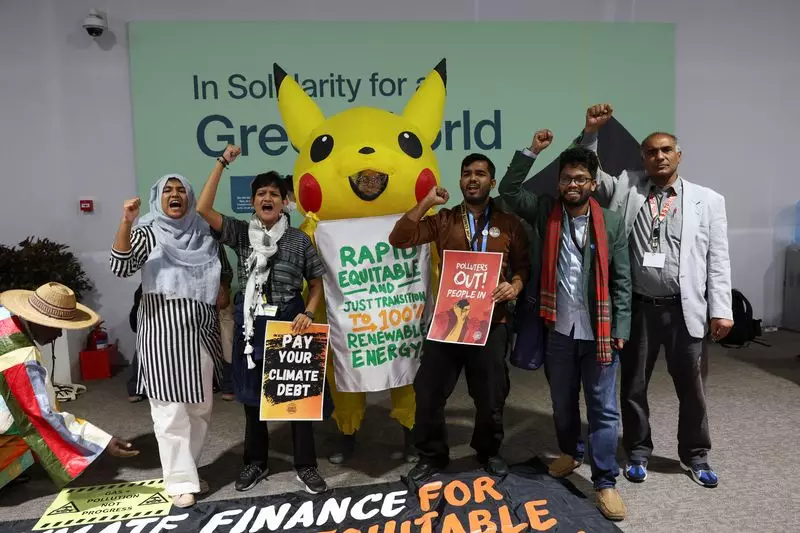As the COP29 climate talks unfold in Baku, a coalition of nations scarred by conflict is making a compelling push for a significant escalation in financial aid. Their request seeks to double the climate funding they receive, aiming for an annual figure exceeding $20 billion. This initiative, detailed in a letter obtained by Reuters, underscores the critical intersection of climate change and geopolitical instability, highlighting how natural disasters exacerbate existing vulnerabilities in conflict-affected regions.
At the heart of this appeal is the stark reality these countries face: extreme weather events can be devastating, pushing populations already on the brink into further crises. The urgency is palpable, as island nations raise alarms about rising sea levels threatening their very survival, while nations rich in rainforest ecosystems plead for financial resources to safeguard their vital carbon sinks. In the backdrop of these challenges lies a particular struggle for countries battling the aftermath of war. The perception of high-risk investment deters private-sect financial commitment, rendering UN funding not just necessary but an essential lifeline for their displaced and vulnerable citizens.
In a strategic response to these challenges, the Azerbaijani COP29 Presidency is launching a new initiative known as the ‘Network of Climate-vulnerable Countries’. This network, which is set to include many members from the g7+, a collective of fragile nations, aims to advocate effectively for climate finance institutions. According to insights from the ODI Global think tank, which has played a pivotal role in the network’s establishment, the initiative is designed to enhance the capacity of member states to secure and efficiently utilize climate finance.
By facilitating the connections between investors and impactful projects, the network aspires to lower the barriers that have historically impeded financial inflow into these fragile nations. Countries such as Burundi, Chad, Iraq, Sierra Leone, Somalia, Timor-Leste, and Yemen have already signed onto this initiative, with invitations extended to all 20 members of the g7+. Abdullahi Khalif, Somalia’s chief climate negotiator, expressed hope that the network would foster a real platform for the most desperate nations to attract the support they critically need.
The complexities surrounding climate finance become even more pronounced when considering the specific challenges faced by conflict-affected states. Advocates note that climate impacts are not uniform; the repercussions of a climate-induced disaster, like a flood, are far more catastrophic in a nation like South Sudan that has been embroiled in turmoil for years than they would be in a more stable country. The stark disparities are illustrated by alarming statistics: According to UNICEF, a child born in South Sudan in 2022 was 38 times more likely to be displaced internally due to climate-related disasters compared to their peers in Europe or North America.
Despite these daunting realities, funding remains inadequately low. Reports show that conflict-stricken nations received only $8.4 billion in climate finance in 2022, which represented merely a quarter of the estimated financial need. This gap signifies a larger systemic failure to adequately equip the world’s most vulnerable populations to confront climate change.
Calls for Accountability and Action at COP29
The g7+ collective has been vocal in its demands, having previously communicated their needs to major institutions including the United Nations and the International Monetary Fund. The group is pressing for explicit financial commitments in any final agreements at COP29. Their proposed aims include doubling adaptation financing to a minimum of $20 billion annually by the year 2026—an ambitious goal that reflects the intensity of their plight.
As the world grapples with climate challenges, advocacy for robust financing mechanisms for vulnerable communities grows ever more critical. The voices from conflict-afflicted nations not only outline a desperate need for support but also call for a global commitment to ensuring that climate funds are allocated in ways that genuinely benefit those most at risk. It is evident that without substantial changes to funding strategies and increased recognition of these unique challenges, progress in the face of climate change will be hindered, leaving millions in peril.

